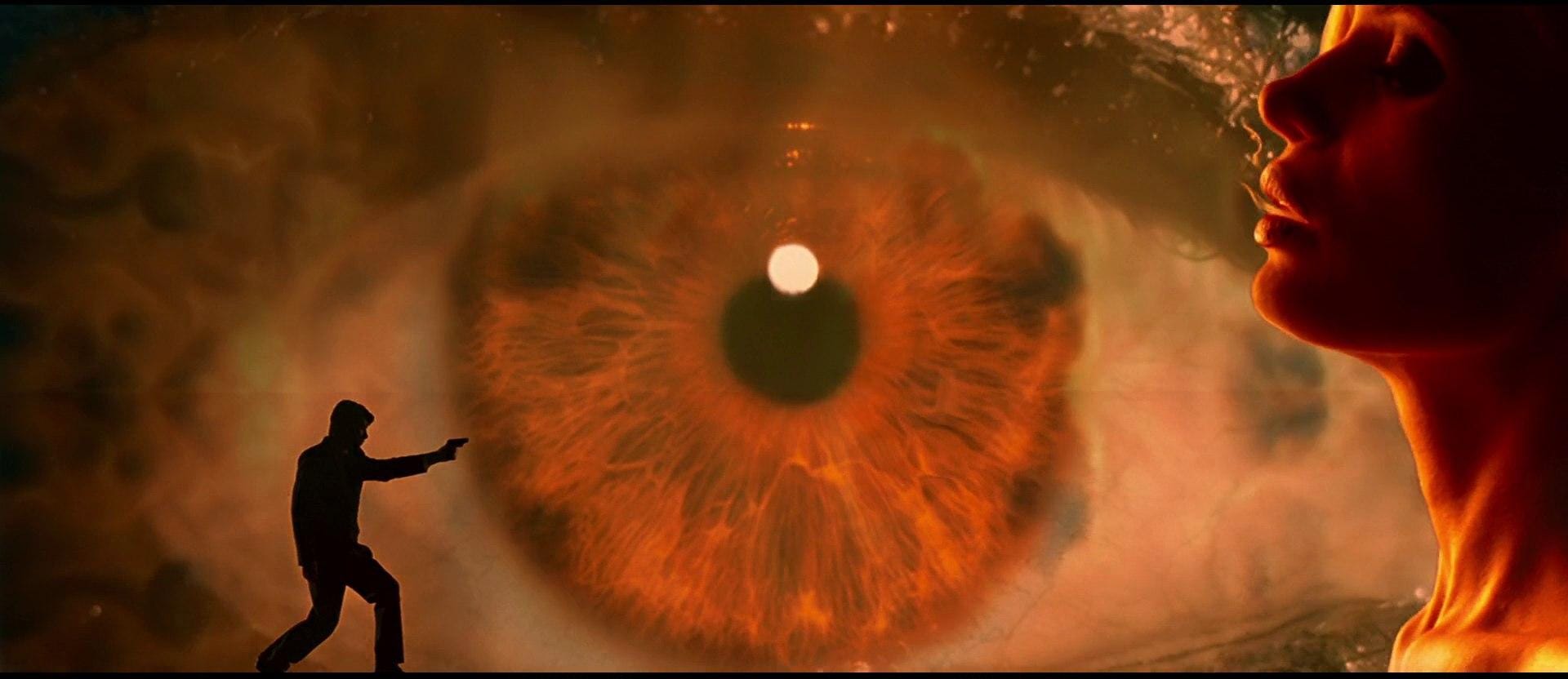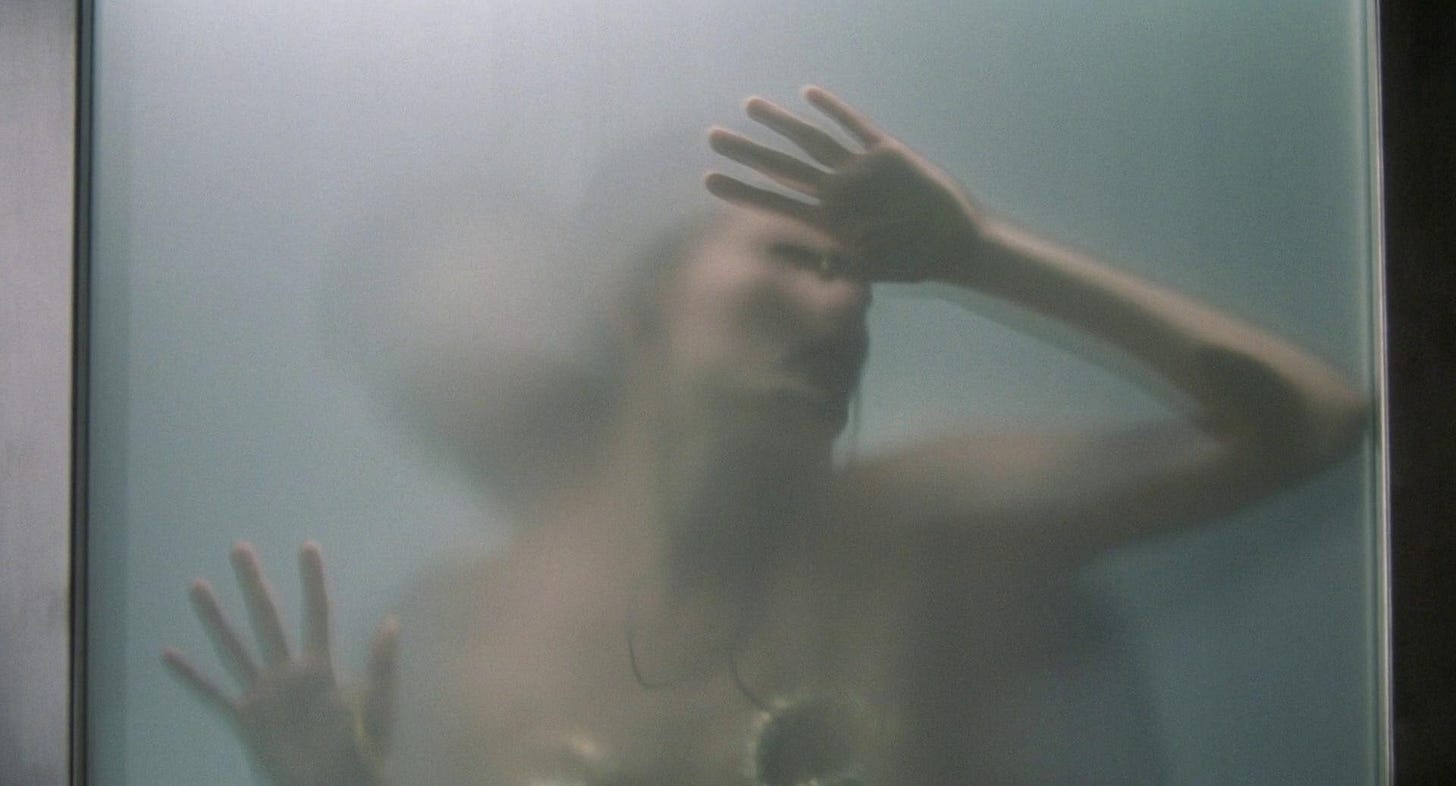From the Vault: April 2023 Streaming
"The Erotic Thriller," "Miami on Film," and "Bond Movies, Ranked!"

From: April 3, 2023
Welcome to an (abridged) April streaming!
Time restraints limited my ability to do a full streaming program this month, but I wanted to offer up a mini newsletter for y'all, so we've got three fully realized programs to tide you over until regular programming resumes in May. These programs are fun, timely, and...a little randy, as we go forth into warmer temperatures and touch grass instead of the TV dial (ideally). Let's see if you can handle the heat....
I Feel You. I Taste You. I Think You. I Touch You: The Erotic Thriller

When I saw that the Criterion Channel was launching a program specifically on erotic thrillers this month, I knew it was the perfect time to re-introduce a revamped iteration of one of our classic programs: Erotic Thrillers. Just how much do I love erotic thrillers? The erotic thriller program actually launched back in 2020, in the spreadsheet's second month, long before I even thought to write-up my programs. Over the last 2+ years, I've built, re-built, rewritten, and reformatted the program as the spread has evolved. I’ve studied the blade, from 9 1/2 Weeks (1986) to Wild Things (1998), and we’ve got a terrific sampling of the genre that's a great companion to (and expansion on) Criterion's offerings. Back when we did our programs on Porno Chic and the NC-17 Rating, I delved into the fascinating trajectory of sex on film in the wake of the elimination of the Hays Production Code and the introduction of hardcore sex into the cultural mainstream. Following the "Porno Chic" era, a byproduct of the sexual revolution, in which pornographic films were made with the production and storylines of legitimate Hollywood movies—and the line between porn and cinema briefly blurred—films were willing to be a lot more cavalier about sex, and they were willing do delve into outré, lurid, or taboo sex that previously existed in subtext and suggestion. The erotic thriller is an answer to a culture that has suddenly become openly and honestly sexual after decades of puritanism and modesty: in these films, sex rules, defines, and destroys lives. People—typically affluent white men and women who are interrogating the intersection of power and sex and negotiating shifting cultural norms—cheat, lie, steal, and even murder in the pursuit of sexual gratification, which adds color and texture to their perfect and/or boring lives (as these films are typically set in white collar offices or generally sleepy suburbs). Erotic cinema from the end of the 20th century is sort of having a moment right now, and I think it's obvious why: it all goes back to our favorite piece on the sad state of contemporary film, Everyone is Beautiful and No One is Horny. With the death of the movie star and mid-budget film, proliferation of family-friendly superhero / blockbuster entertainment, mass accessibility of pornographic material, and the cultural reckoning that has destabilized our understanding of the power structures that allow for—and reinforce—the sexual harassment, exploitation, and subjugation of women (and men!), particularly in Hollywood...movies just...aren't very interested in sex right now, reflecting a wider generational shift towards a “sex recession,” as The Atlantic previously dubbed it. This is not a judgement: I think between the deplorable state of sex education in this country, cultural conversations about consent, and a global pandemic that further alienated young people and abstracted sexual relations, it makes sense that, culturally speaking, you'd see a shift towards sex negativity; what fascinates me is the extent to which contemporary movies reflect and/or reinforce that shift. People are flocking back to the 20th century erotic thriller because movies today generally don't have anything to say about sex outside of stories of exploitation. Movies that do contain sex are typically a far cry from the lurid, boundary-pushing fare of the late 20th century film industry, when creatives pushed the boundaries of the Hollywood rating system in the wake of home video and casual nudity was actually far more commonplace than today (contemporary entertainment that does explore sex...say, like Euphoria, which sell the idea of sex to young people, can have an almost reactionary view of sex, with it framed as something that cannot exist outside of the larger influence of pornography). I think people are revisiting erotic cinema of the late 20th century because movies have become so sexless and erotically uncurious. There's an idea in popular discourse (that is not as new as people would have you believe) that sex doesn't belong in film...that it's “superfluous” or “pointless,” compartmentalizing sexual content into pornography, as if sex isn't a real part of human experience, with rich meanings contained within and stories to tell of human bodies. Arguments inevitably and sometimes indirectly lead to people earnestly making a case for the Production Code, which heavily regulated the content that could be shown on screen as well as the messaging behind this content. It's just so...puritanical! So let's talk about sex, baby. Specifically, let's talk about Adrian Lyne, Gina Gershon, Joe Eszterhas, James Spader, Michael Douglas, Antonio Banderas, Brian De Palma, Kim Basinger, Mickey Rourke, Richard Gere, Jennifer Jason Leigh, Linda Fiorentino and Paul Schrader...our best sickos!
This town is like a great big [REDACTED] just waiting to get [REDACTED]: Miami on Film and TV
Keep reading with a 7-day free trial
Subscribe to The Spread to keep reading this post and get 7 days of free access to the full post archives.




